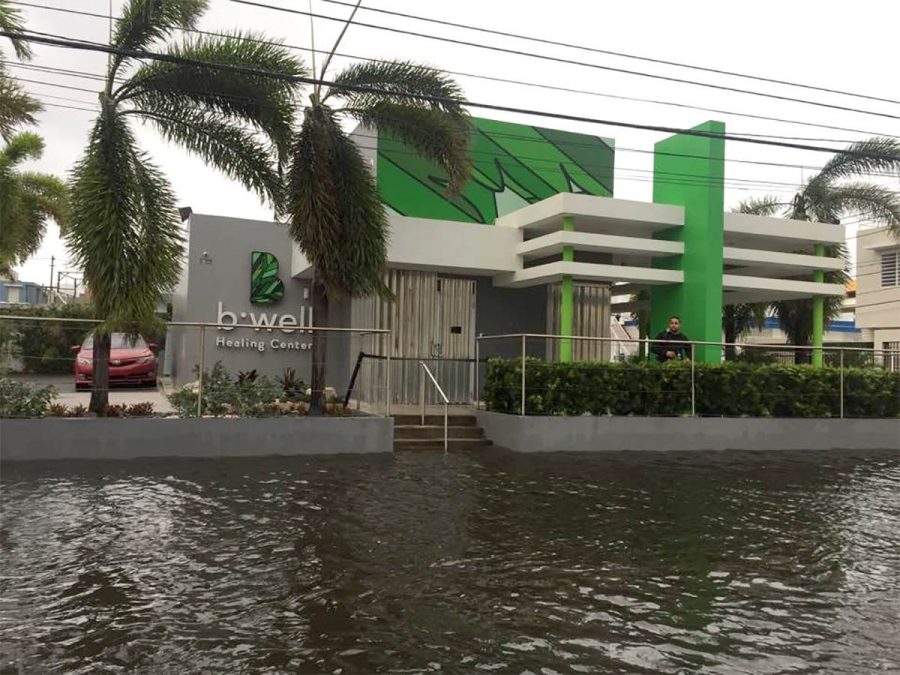Puerto Rico’s medical cannabis industry struggles to recover after hurricane
Puerto Rico’s medical cannabis industry greatly suffered from the damages caused by Hurricane Maria, that could cost the island millions of dollars.
To increase the economic activity of the island, the country legalized medical cannabis last December. But with the recent natural disaster, the island is in $74 billion of debt.
Goodwin Aldarondo, the President and CEO of Puerto Rico Legal Marijuana, told NBC News big manufacturing and grow facilities have had their roof blown off, their equipment damaged; there is no light for plants and most of them are dead.
“You’re talking about millions of dollars of damage and we just started as an industry,”Aldarondo said.
The Puerto Rico Medical Cannabis Association is currently trying to determine the cost of the damages for the industry’s insurers, but the island’s medical cannabis industry, that was becoming one of the emerging businesses in the country, cannot receive any federal aid due to legal restrictions.
“We were expecting a lot from this industry,” Ingrid Schmidt, the president of the Puerto Rico Medical Cannabis Association said to NBC. “It’s the only industry that was creating jobs and a lot of hope was put into this industry because it was critical to the financial circumstances that our island is going through.”
Not only were medical cannabis cultivators affected by the hurricane, but only four of the island’s 29 cannabis dispensaries were able to open following the disaster.
Currently, the dispensaries are slowly starting to reopen and there are now 20 out of 29 dispensaries that fill prescriptions.
Prior to the hurricane, medical cannabis patients could only pick up a prescription from their assigned dispensary, but a new determination from the Puerto Rican Department of Cannabis board has now allowed patients to go to any open clinic.
“It’s not only about the industry,” Alexis Deorris, dispensary manager of San Juan-based Caribbean Green, said. “It’s about people that need their medicine. Especially now that people depend on this medicine rather than pharmaceuticals. We don’t want to let them down.”
As industries, homes, and businesses are dealing with the damages, 36 percent of the island still does not have access to water.
The cannabis association said 90 percent of grow houses in Puerto Rico are indoors and the plants require constant water and artificial light, a reason why those in the industry are very cautious in delivering a quality product at this time.
“We want to think only about the benefit of the patient, and we want to be the example in the future,” Aldarondo said. “We don’t want to set back the industry in Puerto Rico.”











